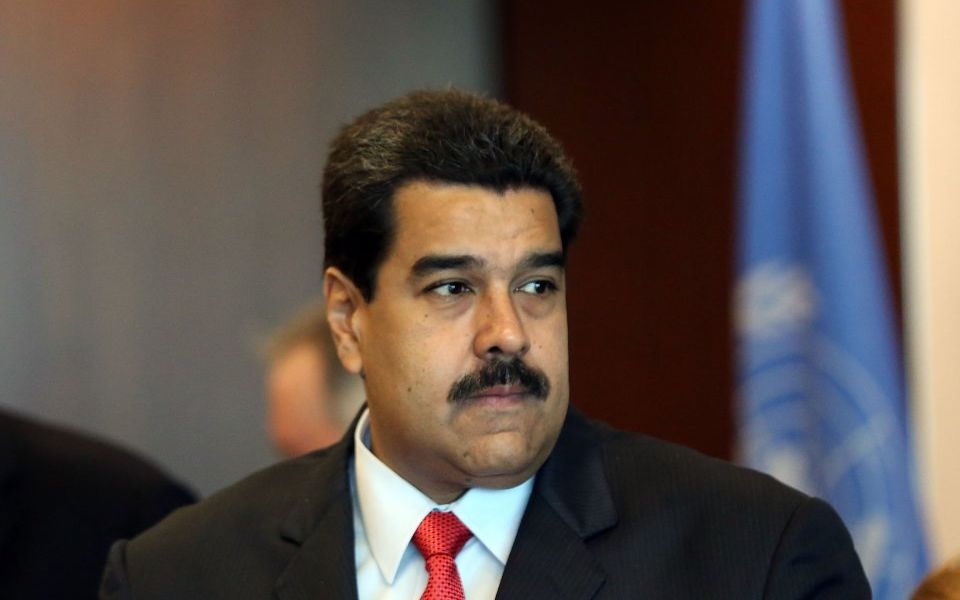Even the Venezuelan President knows that socialism has failed

Venezuela is back in the news, with a plot straight out of a Netflix drama storyline.
The apparent assassination attempt on President Nicolas Maduro last Saturday has everything: a drone explosion during the President’s speech, the terrified reaction of his wife captured during a live broadcast, and now a slew of accusations and counter conspiracy theories.
Never one to waste an opportunity to cement his authority, Maduro’s government has blamed two high-profile opposition lawmakers, and hurled accusations about the involvement of far-right Colombians and, naturally, the US.
Read more: Venezuelan crude exports faced with 24m barrel backlog
In return, opponents have speculated that the attack was staged by the government to give it cover for a crackdown on critics.
This isn’t that far-fetched.
In the past three years, Maduro has used every trick in the dictatorial book to quash dissent, including arresting opposition leaders, rewriting the country’s constitution, and manufacturing a brand new “National Constituent Assembly” crammed with his supporters (including his own wife) to overrule the democratically elected opposition-led legislature.
Faking an assassination attempt isn’t that much of a stretch.
But even accepting that the attack was real, Maduro has bigger problems on his hands than the small matter of people trying to kill him. And he knows it.
To say that Venezuela is an economic basket case is an understatement. Its financial predicament can only be described in superlatives and ludicrous exemplars.
Inflation is over 110 per cent per month and is estimated to hit one million per cent per year by the end of 2018. Its entire economy is based on oil production, which has collapsed disastrously under the tenure of the state-owned energy giant.
The army has been brought in to hand out what little food is available, and since public transportation can no longer afford to run, buses have been replaced with dangerous and illegal pickup trucks that ferry crowds of people around, nicknamed “kennels”.
The country has long been suffering acute shortages of food, staple goods, and medicines, but the government has even run out of money for printing its rapidly devaluing banknotes (which are worth less than the fake currency used in the World of Warcraft games).
All this is the direct result of the statist agenda Maduro adopted from his predecessor, world-renowned arch-socialist Hugo Chavez, and has been pursuing since 2013 with increasing desperation.
Private firms (starting with oil businesses but extending to other sectors, from aerospace to supermarkets) have been seized by the state – the government now runs over 500 companies, very few of them profitable.
Restrictive foreign exchange controls are about to be lifted, but only after a decade of irreparable damage to investment.
Businesses face a mandated cap on profits, a tangle of unworkable regulation, and the constant threat of being taken over by the state.
Meanwhile, rock-bottom price controls have fuelled a vicious black market, and the army is routinely brought in to clamp down on violent – sometimes fatal – street riots. And that’s before we even mention the drugs trade.
None of this is news. Venezuela’s demise has been routinely documented in the finance and foreign pages over the last five years, alongside analysis of how its nascent democracy has similarly spiralled.
What is new, however, is the President’s sudden change of tone.
On the Monday before the drone attack, Maduro had a surprising message for the congress of his ruling socialist party: “the production models we’ve tried so far have failed”.
In what sounded almost like an admission of accountability, he continued “the responsibility is ours, mine and yours”, before urging his party “no more whining, I want solutions, comrades”.
The solutions for Venezuela are few, and Maduro won’t like them.
Scrap the socialist model – and the socialist government along with it – and start again. Admit the scale of the crisis and allow in humanitarian agencies to deal with the immediate disaster. Petition for emergency international financing and strike a debt deal. Over the longer term, launch a new dollar-backed currency, repeal the reams of red tape, and let the private sector (particularly foreign firms) back in.
None of this can realistically happen under a man who spends his days pursuing the exact opposite course and orchestrating his country’s economic collapse.
Maduro has gone too far down the socialist rabbit hole – with the authoritarian crackdowns on dissent that inevitably go with it – to turn back now. All he has left is his populist appeal, that will crumble at the first hint of reversal.
He might now finally be able to recognise the devastation he has caused, but with that epiphany must come the realisation that the only way he could fix it is to step down.
And no one who has spent half a decade distorting the political institutions of his nation to safeguard his own power would ever do that.
But Maduro’s admission, however useless and overdue it is now, at least demonstrates that the country is at breaking point. Even the President knows that there is nothing he can do to get the economy back on track and stay in power.
An assassination attempt, real or otherwise, is the least of his worries.
Read more: McDonnell: Venezuela is in crisis because it's 'not a socialist country'
City A.M.'s opinion pages are a place for thought-provoking views and debate. These views are not necessarily shared by City A.M.